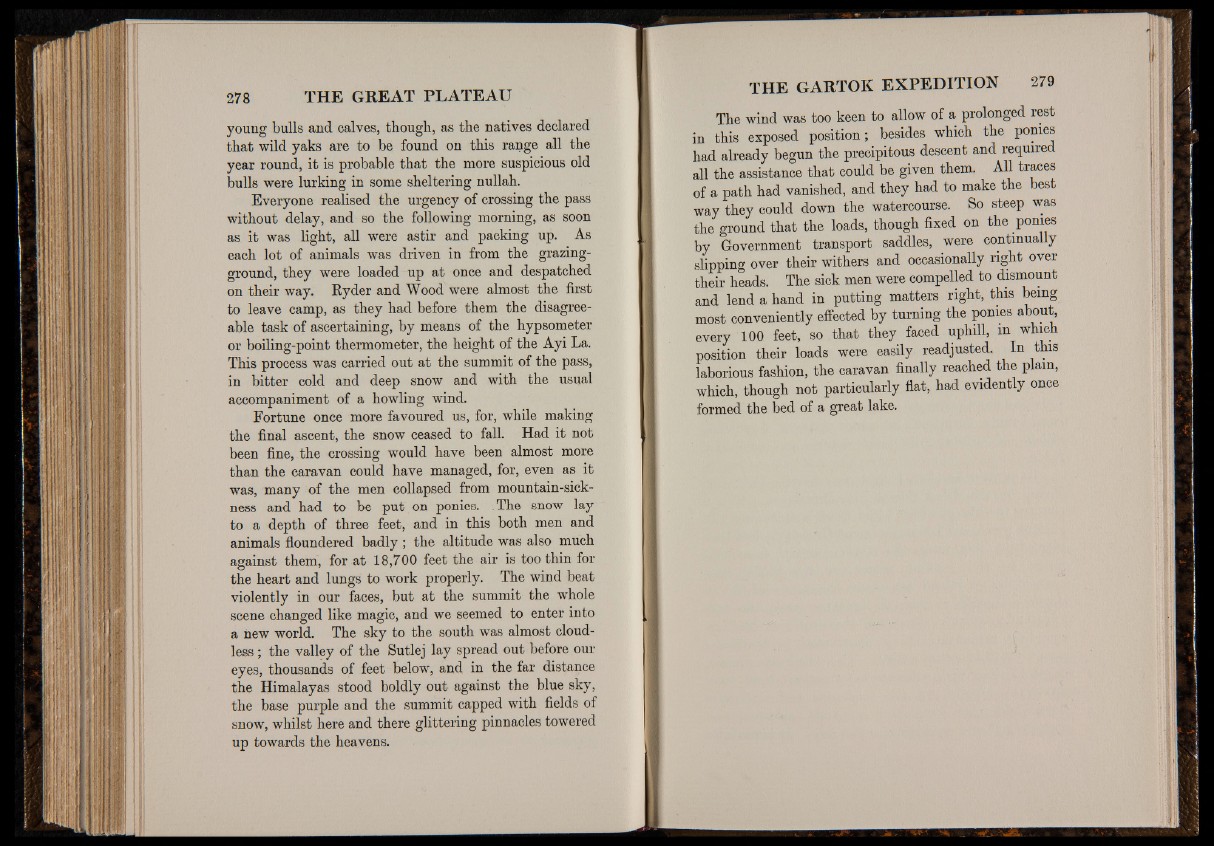
young bulls and calves, though, as the natives declared
that wild yaks are to be found on this range all the
year round, it is probable that the more suspicious old
bulls were lurking in some sheltering nullah.
Everyone realised the urgency of crossing the pass
without delay, and so the following morning, as soon
as it was light, all were astir and packing up. As
each lot of animals was driven in from the grazing-
ground, they were loaded up at once and despatched
on their way. Ryder and Wood were almost the first
to leave camp, as they had before them the disagreeable
task of ascertaining, by means of the hypsometer
or boiling-point thermometer, the height of the Ayi La.
This process was carried out at the summit of the pass,
in bitter cold and deep snow and with the usual
accompaniment of a howling wind.
Fortune once more favoured us, for, while making
the final ascent, the snow ceased to fall. Had it not
been fine, the crossing would have been almost more
than the caravan could have managed, for, even as it
was, many of the men collapsed from mountain-sick-
ness and had to be put on ponies. The snow lay
to a depth of three feet, and in this both men and
animals floundered badly ; the altitude was also much
against them, for at 18,700 feet the air is too thin for
the heart and lungs to work properly. The wind beat
violently in our faces, but at the summit the whole
scene changed like magic, and we seemed to enter into
a new world. The sky to the south was almost cloudless
; the valley of the Sutlej lay spread out before our
eyes, thousands of feet below, and in the far distance
the Himalayas stood boldly out against the blue sky,
the base purple and the summit capped with fields of
snow, whilst here and there glittering pinnacles towered
up towards the heavens.
The wind was too keen to allow of a prolonged rest
in this exposed position; besides which the ponies
had already begun the precipitous descent and required
all the assistance that could be given them. All traces
of a path had vanished, and they had to make the best
way they could down the watercourse. So steep was
the ground that the loads, though fixed on the ponies
by Government transport saddles, were continually
slipping over their withers and occasionally right ovei
their heads. The sick men were compelled to dismount
and lend a hand in putting matters right, this being
most conveniently effected by turning the ponies about
every 100 feet, so that they faced uphill, m which
position their loads were easily readjusted. In this
laborious fashion, the caravan finally reached the plain,
which, though not particularly flat, had evidently once
formed the bed of a great lake.